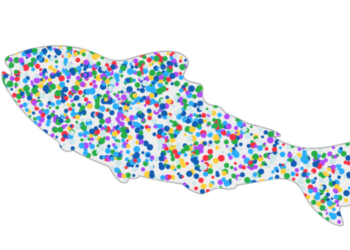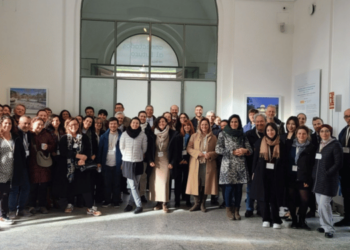Tilapia 2.0: genetic editing revolutionises aquaculture – Brazilian Fish, one of Brazil’s leading tilapia producers, marks a turning point in the aquaculture industry with the introduction of the first genetically enhanced tilapia. Working with the Center for Aquaculture Technologies (CAT) in the US, the company has developed an innovative gene editing programme aimed at optimising the growth and yield of this fish, making it even more competitive in the global market.
The genetic editing of Nile tilapia conducted by Brazilian Fish uses advanced biotechnology tools to achieve targeted improvements, accelerating a process that would take decades with traditional breeding methods. Thanks to this technology, it is possible to target specific genes related to growth and feed efficiency, resulting in more sustainable and profitable production.
This technique does not introduce foreign elements into the fish genome, but merely modifies existing gene sequences to enhance characteristics already present in nature. The project focuses on myostatin, a protein that regulates muscle growth, reducing its activity in order to obtain larger specimens with a better meat/bone ratio.
Scientists involved in the project have developed an in vitro fertilisation protocol, creating genetically modified eggs to produce offspring with superior growth and yield characteristics.
After two years of preliminary research and testing, the first genetically improved tilapia have been produced and kept in controlled environments for genomic evaluations. The next step will be to test its performance under real-life breeding conditions, evaluating its effectiveness in terms of yield and economic viability.
Safety and regulation: guarantees for the consumer
The innovation introduced by Brazilian Fish follows strict biosafety protocols, in compliance with the regulations of the National Technical Commission for Biosafety (CTNBio). The company has obtained a Quality Certificate for Biosafety and operates under the close supervision of an internal committee that assesses the impact of genetic modifications.
The genomic editing process adopted does not involve the introduction of exogenous DNA, but rather accelerates a genetic change that could occur naturally, thus guaranteeing a product that is safe for human consumption and compliant with current regulations.
The future of Brazilian aquaculture
With this initiative, Brazilian Fish is positioning itself as a pioneer in aquaculture innovation, demonstrating how technology can be a powerful ally in the sustainable growth of the sector. The adoption of advanced genetic tools will not only improve the production performance of tilapia, but could pave the way for future applications in the improvement of other farmed species.
The global fish industry is constantly evolving, and projects like this represent a crucial step forward in meeting the growing demand for fish protein, while maintaining a strong commitment to environmental and economic sustainability.
Tilapia 2.0: genetic editing revolutionises aquaculture








